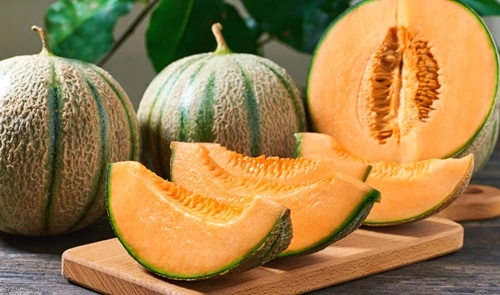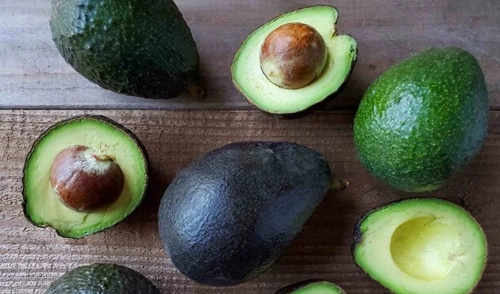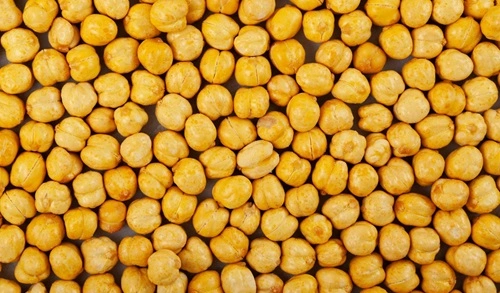Muskmelon, also known as “Kharbuja”, is a popular summer fruit in India, cherished for its sweet aroma, juicy flesh, and refreshing taste. As a rich source of vitamins A and C, antioxidants, and water content, muskmelons help combat dehydration during scorching summers. The fruit is grown extensively across tropical and subtropical regions of India, with states like Punjab, Uttar Pradesh, Haryana, Rajasthan, Maharashtra, Tamil Nadu, and Andhra Pradesh being the top producers.
India grows several muskmelon varieties suited for different climatic conditions, market needs, and consumer preferences. This article highlights the top muskmelon varieties in India, their characteristics, regions of cultivation, and uses.

1. Pusa Sharbati
Pusa Sharbati is a high-yielding hybrid variety developed by the Indian Agricultural Research Institute (IARI). It is known for its sweet aroma, smooth texture, and excellent flavor.
- Fruit Shape: Round to oval
- Rind Color: Yellow with netted skin
- Flesh Color: Orange
- Weight: 1–1.5 kg
- Regions: Punjab, Haryana, Uttar Pradesh
- Characteristics: Sweet, juicy, early maturing
- Uses: Table fruit, fresh juice
2. Punjab Hybrid
Punjab Hybrid is a popular variety cultivated for its high sugar content and uniform fruit size. It is well-adapted to the northern plains of India.
- Fruit Shape: Round
- Rind Color: Yellow with fine netting
- Flesh Color: Orange
- Weight: 1.5–2 kg
- Regions: Punjab, Haryana, Rajasthan
- Characteristics: Early maturity, firm texture, high yield
- Uses: Table fruit, salads
3. Arka Rajhans
Arka Rajhans is a high-yielding variety developed by the Indian Institute of Horticultural Research (IIHR). It produces uniform fruits with excellent sweetness.
- Fruit Shape: Oval
- Rind Color: Yellowish-green with netted skin
- Flesh Color: Orange
- Weight: 1–1.5 kg
- Regions: Karnataka, Tamil Nadu, Maharashtra
- Characteristics: High sugar content, disease resistance
- Uses: Table fruit, juices
4. Hara Madhu
Hara Madhu is one of the most widely grown muskmelon varieties in India. It is popular for its sweet, juicy flesh and high yield.
- Fruit Shape: Round
- Rind Color: Greenish-yellow with netted texture
- Flesh Color: Light green
- Weight: 1.5–2 kg
- Regions: Uttar Pradesh, Punjab, Rajasthan
- Characteristics: Sweet, juicy, early maturity
- Uses: Fresh fruit, salads
5. Durgapura Madhu
Durgapura Madhu is a high-quality variety known for its sweet flavor and excellent aroma. It thrives in arid and semi-arid regions.
- Fruit Shape: Oval
- Rind Color: Greenish-yellow
- Flesh Color: Light green
- Weight: 1–2 kg
- Regions: Rajasthan, Gujarat, Maharashtra
- Characteristics: High yield, sweet, adaptable to dry regions
- Uses: Table fruit, juices
6. Kashi Madhu
Kashi Madhu is a hybrid variety developed by Indian Vegetable Research Institute (IVRI). It is well-known for its high sweetness and resistance to common pests.
- Fruit Shape: Round
- Rind Color: Yellowish-green
- Flesh Color: Light green
- Weight: 1–1.5 kg
- Regions: Uttar Pradesh, Bihar, Madhya Pradesh
- Characteristics: Early maturity, sweet taste, disease resistance
- Uses: Fresh fruit, desserts
7. Pusa Madhuras
Pusa Madhuras is another variety developed by IARI, known for its high sugar content and uniform fruit size. It has excellent market demand.
- Fruit Shape: Oval
- Rind Color: Yellow with light netting
- Flesh Color: Orange
- Weight: 1.5–2 kg
- Regions: Punjab, Haryana, Tamil Nadu
- Characteristics: High sweetness, early maturity, smooth texture
- Uses: Table fruit, fresh juices
8. Coimbatore Long
Coimbatore Long is a unique muskmelon variety grown in southern India, particularly in Tamil Nadu. It is known for its elongated shape and sweet pulp.
- Fruit Shape: Elongated
- Rind Color: Light yellow
- Flesh Color: Orange
- Weight: 1.5–2 kg
- Regions: Tamil Nadu, Karnataka
- Characteristics: Sweet, aromatic, firm pulp
- Uses: Fresh fruit, desserts
9. Shreenath
Shreenath is a widely grown muskmelon variety due to its uniform size and high yield. It is known for its excellent sweetness and market acceptance.
- Fruit Shape: Round
- Rind Color: Yellow
- Flesh Color: Light green
- Weight: 1–1.5 kg
- Regions: Gujarat, Maharashtra, Rajasthan
- Characteristics: Uniform fruit, high sugar content, early harvest
- Uses: Table fruit, juices
10. Hybrid Muskan
Hybrid Muskan is a commercial hybrid variety grown for its high yield and excellent market value. It produces sweet and juicy fruits.
- Fruit Shape: Round to oval
- Rind Color: Yellow with fine netting
- Flesh Color: Orange
- Weight: 1.5–2 kg
- Regions: Maharashtra, Tamil Nadu, Karnataka
- Characteristics: High yield, firm texture, sweet pulp
- Uses: Fresh fruit, salads
FAQs
Q1: Which muskmelon variety is best for sweetness?
A: Pusa Sharbati, Hara Madhu, and Durgapura Madhu are well-known for their excellent sweetness.
Q2: What is the most popular muskmelon variety in India?
A: Hara Madhu and Pusa Sharbati are among the most popular varieties due to their yield, sweetness, and market demand.
Q3: Which state is the largest producer of muskmelon in India?
A: States like Punjab, Uttar Pradesh, Haryana, and Rajasthan are the largest producers of muskmelons.
Q4: What is the ideal climate for muskmelon cultivation?
A: Muskmelons grow best in hot, dry climates with temperatures between 25°C and 35°C.
Q5: Which muskmelon variety is suitable for arid regions?
A: Durgapura Madhu is ideal for arid and semi-arid regions due to its drought tolerance and adaptability.
Conclusion
India’s rich agro-climatic diversity allows for the cultivation of a wide range of muskmelon varieties. From the highly popular Pusa Sharbati and Hara Madhu to regional favorites like Coimbatore Long and Durgapura Madhu, farmers have numerous options to cater to domestic and international markets. Muskmelons, with their sweet flavor and refreshing quality, continue to be a summer staple across the country.

